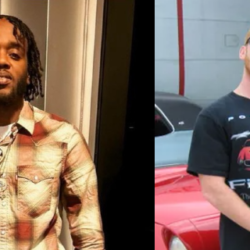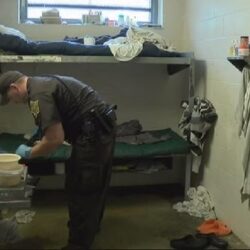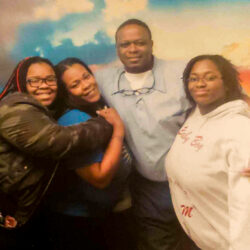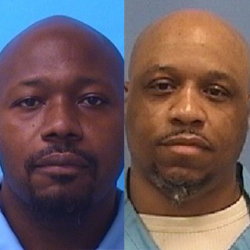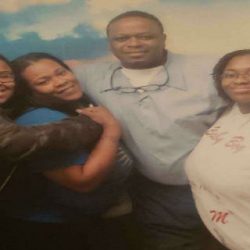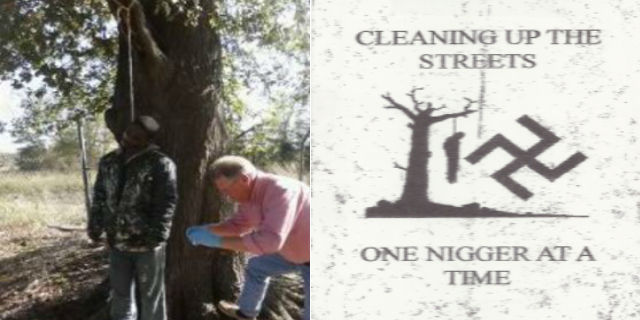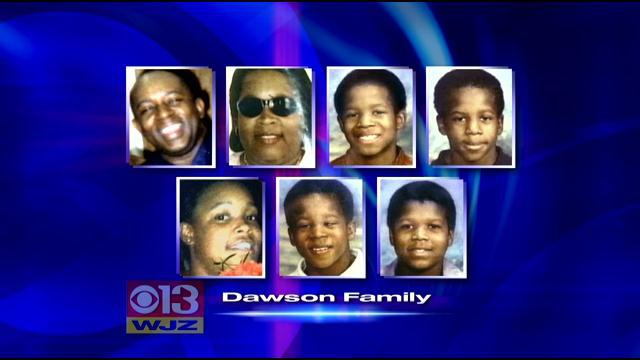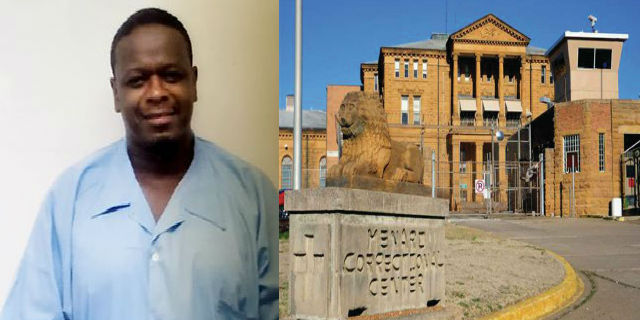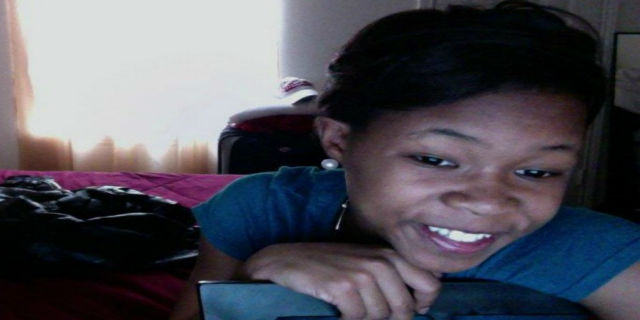In My Skin Part I: Understanding The Effects Of Colorism Has Been My Greatest Upheaval
Posted by David Adams on December 31st, 2020
The earliest recollection that I have of encountering a race related incident was in a kindergarten class room, when our teacher, whose name I don’t recall, paired all of her students in a classroom dancing exercise, and a white girl name Lydia made it known that she was displeased with me having been assigned as her dance partner. She said, “Eew, I have to dance with a brown boy.” I recall being confused when she boldly exclaimed her dislike. I even began to look around the room to see who she was talking about, because in my mind, I was far from brown .
It bothered me that she classified me as being brown, when I knew that there wasn’t that much of a distinction between her skin color and mine. That subtle form of racism started the process of eroding my innocence as a child, because even though I didn’t have the mental capacity as a kid to fully understand the emotional impact the incident had on me, in reality, it created a stigmatization that left me feeling that I was deficient, abnormal, and an undesirable because of the color of my skin.
I must give my mother credit for having the presence of mind of identifying certain traits displayed by her children that encouraged her to implement character building and social education development, by instilling a sense of pide and end encouragement that we could achieve anything in life. After a while, I forgot about the harmful effect Lydia’s comment had on me, but little did I know, it was just the beginning of a tremendous upheaval that would span well into adulthood, as the very color of my skin became a battle ground of many social settings throughout my life.
You see, long before I had met Lydia as a child, society had already carved out the playing field for race relations, and the elicit comment this little white girl made before our kindergarten class was simply a biproduct of what she had been taught, suspectedly by her family, or through the social environment she had been exposed to. It could also be classified as a prima facia case that illustrates how racism and colorism is taught and not an innate human trait.
My perspective is even heightened by the fact that her comments were so foreign, unusual, and concerning to me because I had never been presented with an issue pertaining to my skin color before. The fact that I have the ability to depict the incident with such detail at this age, should demonstrate how powerful of an impact it had on me as an individual. Unfortunately, there would be other Lydia’s throughout my life, and a volume of them would even be members of my own family.
As I became of age and started interacting with some real brown folks, the experience made the racial remark by young Lydia seem like a scene from a kissing both at the state fair, in comparison. In fact, I became more aware of how people within society reacted when encountering others of different skin color. I mean, there were literally dark skinned girts who would say “you are an ugly yellow motherfucker” straight to my face, and for a while, I developed a complex and dislike for darker complexed people because I thought they were negative and evil.
I have come to realize that such thinking was in direct relations to the Lydia affect that had impacted me from childhood. Dr, King’s philosphy of having his children being judge by the content of their character and not by the color of their skin, was a tremendous life line for me, as it allowed me to foster a different way of thinking early on in life. Yet, the battle of colorism was far from over. I can’t count the number of times I got into it with a classmate, someone in the community, and even family members who tried to victimize me because of my complexion.
Somewhere along the way somebody “got it fucked up” that being light skinned was synonymous with being weak, but as I recall, there were also quite a few of those people who needed a bandaid or experienced having to visit the local hospital emergency room to get sutures, when they tried to victimize me with their racial nonsense. It literally was a battle growing up in poverty and being one of the light skin kids in the neighborhood. Fighting before, during, after, and coming home from school became a right of passage.
In fact, like a scene straight out of the iconic Richard Pryor film “Joe Joe Dancer,” my brothers and I would hide sticks, bottles, and large rocks as weapons along the route to school, so that when we had to fight, we had weapons to defend ourselves. We weren’t just fighting the kids in school, but our mother’s desire to live in a multi racial community within the old Highlandtown section of East Baltimore, created hostile community relations in the early 1970’s. Hell, we were fighting kids from all ethnic backgrounds, as the melting pot of urban socialization was being formed in the immediate post Civil Rights era.
My adolescence coupled with growing up in poverty, violent crime, being exposed to alcoholism and drug usage, and having to literally fight to exist was so surreal, its believed that by the time I ever stepped on a college campus, I was already suffering from an advanced post traumatic stress disorder. Many of us who came up in similar environments across the country probably suffered from some form of PTSD or another and despite all of the talk about racism, how the white man was holding us back, much of what I recall experiencing was self inflicted by the black community itself.
Now, while that was probably a very broad and generalized statement indicting the black community, I can only measure it all and form my opinion based on my personal experiences. People will argue that there were so many social economic variables that has created many of the ills that has and continues to plague black communities, but regardless of the causes, the disease of colorism within the black family is a phenomenon polarizing communities of color.
A continuing Blog Series…
“In My Skin: How The Effects Of Colorism Destroyed My Family For Generations,” next article.
I’m Blogger and Crime Writer David B. Adams
A Self proclaimed geek, Sympathizer for the homeless, Social Change Advocate, Crime Blogger, Promoter of Awareness for Missing and Exploited Children, and a mobile technology enthusiast. A recognized Journalist and Human Interest Writer championing the plight of the masses whom are without a voice of their own.
More Posts - Website
Follow Me:




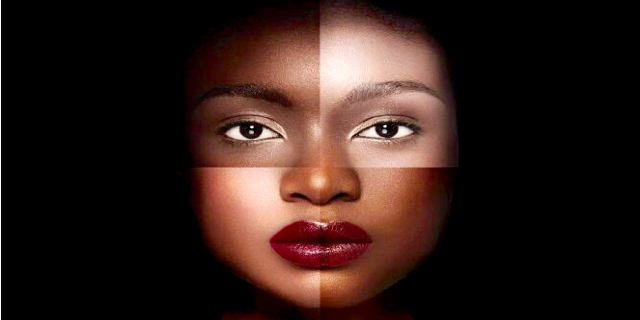
The earliest recollection that I have of encountering a race related incident was in a kindergarten class room, when our teacher, whose name I don’t recall, paired all of her students in a classroom dancing exercise, and a white girl name Lydia made it known that she was displeased with me having been assigned as her dance partner. She said, “Eew, I have to dance with a brown boy.” I recall being confused when she boldly exclaimed her dislike. I even began to look around the room to see who she was talking about, because in my mind, I was far from brown .
It bothered me that she classified me as being brown, when I knew that there wasn’t that much of a distinction between her skin color and mine. That subtle form of racism started the process of eroding my innocence as a child, because even though I didn’t have the mental capacity as a kid to fully understand the emotional impact the incident had on me, in reality, it created a stigmatization that left me feeling that I was deficient, abnormal, and an undesirable because of the color of my skin.
I must give my mother credit for having the presence of mind of identifying certain traits displayed by her children that encouraged her to implement character building and social education development, by instilling a sense of pide and end encouragement that we could achieve anything in life. After a while, I forgot about the harmful effect Lydia’s comment had on me, but little did I know, it was just the beginning of a tremendous upheaval that would span well into adulthood, as the very color of my skin became a battle ground of many social settings throughout my life.
You see, long before I had met Lydia as a child, society had already carved out the playing field for race relations, and the elicit comment this little white girl made before our kindergarten class was simply a biproduct of what she had been taught, suspectedly by her family, or through the social environment she had been exposed to. It could also be classified as a prima facia case that illustrates how racism and colorism is taught and not an innate human trait.
My perspective is even heightened by the fact that her comments were so foreign, unusual, and concerning to me because I had never been presented with an issue pertaining to my skin color before. The fact that I have the ability to depict the incident with such detail at this age, should demonstrate how powerful of an impact it had on me as an individual. Unfortunately, there would be other Lydia’s throughout my life, and a volume of them would even be members of my own family.
As I became of age and started interacting with some real brown folks, the experience made the racial remark by young Lydia seem like a scene from a kissing both at the state fair, in comparison. In fact, I became more aware of how people within society reacted when encountering others of different skin color. I mean, there were literally dark skinned girts who would say “you are an ugly yellow motherfucker” straight to my face, and for a while, I developed a complex and dislike for darker complexed people because I thought they were negative and evil.
I have come to realize that such thinking was in direct relations to the Lydia affect that had impacted me from childhood. Dr, King’s philosphy of having his children being judge by the content of their character and not by the color of their skin, was a tremendous life line for me, as it allowed me to foster a different way of thinking early on in life. Yet, the battle of colorism was far from over. I can’t count the number of times I got into it with a classmate, someone in the community, and even family members who tried to victimize me because of my complexion.
Somewhere along the way somebody “got it fucked up” that being light skinned was synonymous with being weak, but as I recall, there were also quite a few of those people who needed a bandaid or experienced having to visit the local hospital emergency room to get sutures, when they tried to victimize me with their racial nonsense. It literally was a battle growing up in poverty and being one of the light skin kids in the neighborhood. Fighting before, during, after, and coming home from school became a right of passage.
In fact, like a scene straight out of the iconic Richard Pryor film “Joe Joe Dancer,” my brothers and I would hide sticks, bottles, and large rocks as weapons along the route to school, so that when we had to fight, we had weapons to defend ourselves. We weren’t just fighting the kids in school, but our mother’s desire to live in a multi racial community within the old Highlandtown section of East Baltimore, created hostile community relations in the early 1970’s. Hell, we were fighting kids from all ethnic backgrounds, as the melting pot of urban socialization was being formed in the immediate post Civil Rights era.
My adolescence coupled with growing up in poverty, violent crime, being exposed to alcoholism and drug usage, and having to literally fight to exist was so surreal, its believed that by the time I ever stepped on a college campus, I was already suffering from an advanced post traumatic stress disorder. Many of us who came up in similar environments across the country probably suffered from some form of PTSD or another and despite all of the talk about racism, how the white man was holding us back, much of what I recall experiencing was self inflicted by the black community itself.
Now, while that was probably a very broad and generalized statement indicting the black community, I can only measure it all and form my opinion based on my personal experiences. People will argue that there were so many social economic variables that has created many of the ills that has and continues to plague black communities, but regardless of the causes, the disease of colorism within the black family is a phenomenon polarizing communities of color.
A continuing Blog Series…
“In My Skin: How The Effects Of Colorism Destroyed My Family For Generations,” next article.
I’m Blogger and Crime Writer David B. Adams
A Self proclaimed geek, Sympathizer for the homeless, Social Change Advocate, Crime Blogger, Promoter of Awareness for Missing and Exploited Children, and a mobile technology enthusiast. A recognized Journalist and Human Interest Writer championing the plight of the masses whom are without a voice of their own.
More Posts - Website
Follow Me:




You can
leave a response, or
trackback from your own site.

 RSS Feed
RSS Feed Twitter
Twitter




 Posted in
Posted in 